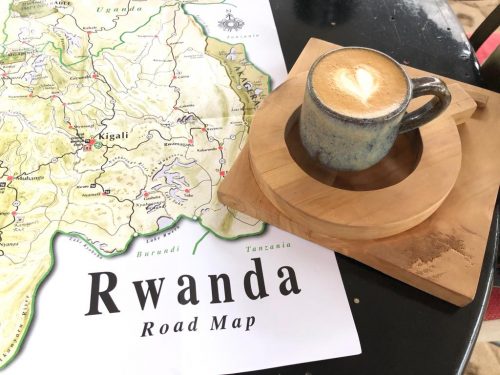
I thought a coffee tasting would involve the serving of various coffees of the world, with interesting stories of the way coffee beans were affected by altitude, soil and temperature. Basically, I thought that it would be a wine tasting. Without the alcohol. Or the swirling. Question Coffee’s tasting workshop wasn’t that. It was so much more.
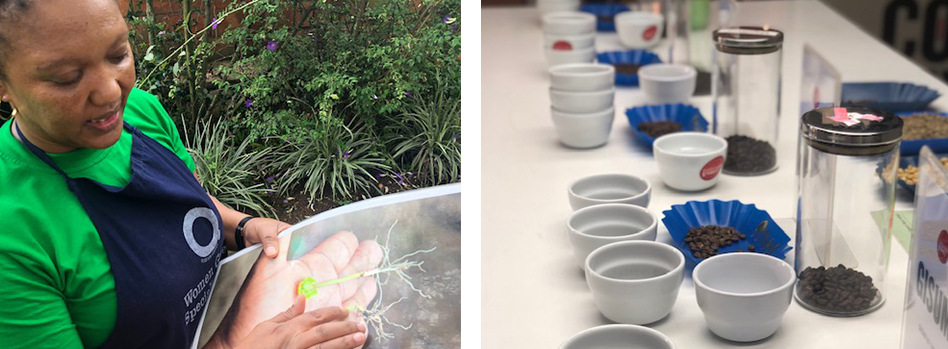
We started in the gardens of the coffee shop, in a mini coffee plantation, where head barista Jocelyn took me through the stages of a coffee plant, and the ripening of the cherries. It’s not for the faint-hearted – as Karen Blixen certainly discovered: three years before the cherries can be harvested, and then a delicate and tiring process of twisting the cherries from the tree, leaving the tip still intact, so that a new cherry can grow. Jocelyn explained how the Rwandan women of various co-operatives, supported by Question Coffee, do this entirely by hand; hour upon hour of precise picking. I didn’t know there were different processes that lead to the eventual drying of the beans – another long and wearisome task, sifting through drying beans. I was starting to see how a cup of coffee is not that easy to actually make. Yet I drink it every day.
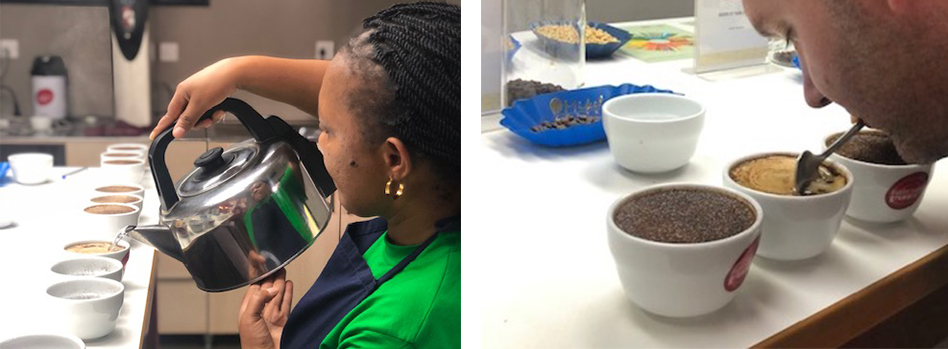
Jocelyn asked if I had any questions – I said I didn’t, so she questioned me on the three processes of coffee production. It was at that point that I knew that this was not a sit-back-and-enjoy type of workshop. I wracked my brain: ‘Natural, fully-washed and honey.’ So, I was listening, Jocelyn joked.
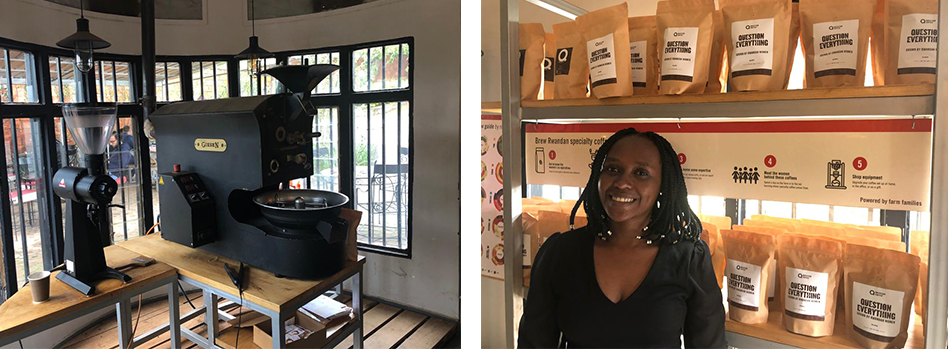
Back in the tasting room, we went through the processes of tasting and evaluating the coffee from the different co-operatives of Rwandan women. To say I learnt a lot would be an understatement. I learnt how to grind coffee like a pro; to be more sensitive to the various flavours lurking in each delicious brew; the necessity of skimming the layer of sediment off the top of coffee; and, of course, the important work that Question Coffee is doing in Rwanda, and their support of women-based co-operatives. And I was kept on my toes. I had to fill in a form, giving details of the smell (of ground beans and when mixed with water – different, if you can believe it), taste, mouthfeel and acidity of each coffee. Jocelyn did the same, and we compared our findings along the way.
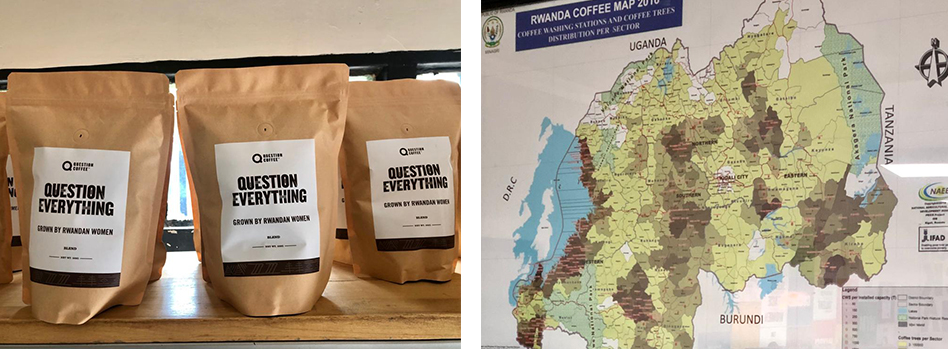
A coffee used to be a kick start in the morning, now it became an intricate mix of so much more. Like I said to Jocelyn, I’m going to have way more respect for the long journey the coffee makes before it reaches my morning brew.
I laughed and joked and felt light-headed from the large intake of coffee (I was provided with a croissant). Two hours flew by. Jocelyn was my co-star in becoming a coffee expert. I left with a bag of coffee – the Question Coffee blend, of course – and the smell of a new-found admiration wafting around me.
- Train a woman and you train a community -
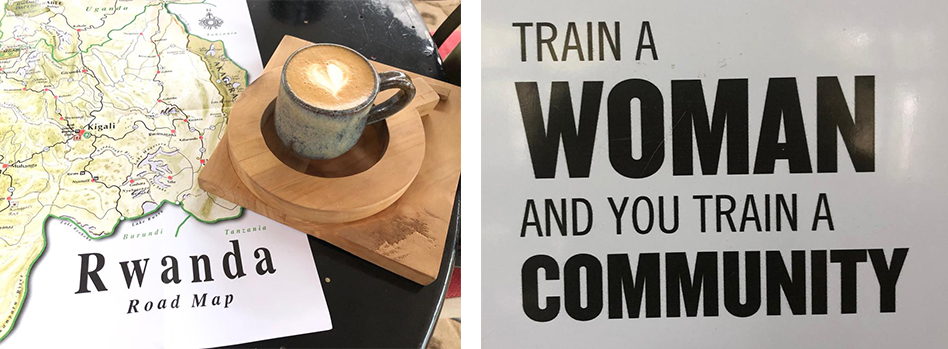
When you next happen to find yourself in the lovely city of Kigali please be sure to visit Question Coffee. In 2013, Bloomberg Philanthropies and Sustainable Harvest® partnered to create the Relationship Coffee Institute, a non-profit public benefit corporation committed to transforming the lives of rural, low-income women coffee farmers through training and market access. Question Coffee is supported by the Relationship Coffee Institute to provide a retail and training space where Rwanda's specialty coffee professionals and consumers can gather to experience the country's vibrant coffee sector. All proceeds from Question Coffee sales fund farming trainings implemented by Relationship Coffee Institute training staff. Over 30 000 Rwandan women are involved in this initiative. And the coffee is delicious.
Filed under: East Africa Travel
Subscribe for Weekly Stories
Comments (1):
18 January 2021
My favorite coffee in the world is Cafe de Maraba, a women’s cooperative in southern Rwanda!

Angama Safari Offers